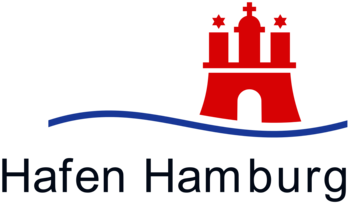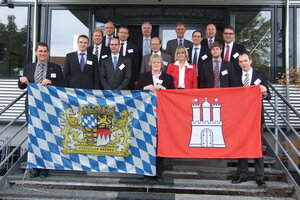
Initial situation
The Free State of Bavaria is the most important federal state in the container hinterland traffic of the Port of Hamburg with an annual volume of approx. 630,000 TEU (2010). Although the distance between Hamburg and cities in Bavaria is between 400 and 900 km, a large proportion of the transports take place on the road (35% to 38% of the truck share, therefore the share of the railway is currently about 62% - 65%. The truck is considered to be a means of transport, which is primarily used in urban transport (up to 150 km), so the question arises why it is so important on this relation.
Task and project goal
The joint project "Hafen Hamburg 62+" aims to increase the share of rail traffic in container hinterland traffic to Bavaria from 62% to 65%. Also from the point of view of environmental policy, the importance of rail transport is becoming increasingly important. The project partners pursue jointly identified approaches for further strengthening the rail along the transport chain.
The decision on the choice of the means of transport is usually made by the forwarders and their customers, the shippers. The objective is also to increase the transparency of the rail transport services offered, and to link the shipping industry and the port of Hamburg more.
Approach
In the first step, traffic statistics and charge streams were analyzed and nearly 50 companies were interviewed in the transshipping and transporting economy. Based on the result of the surveys of the transshipping economy, optimization measures could then be derived.
Result
Compared to other ports, the share of the container hinterland traffic is already very high today. However, the numerous expert interviews showed that optimization potential still exists, such as greater transparency on combined transport, better networking of the domestic terminals, the construction of new terminals as well as further optimization of the process. These potentials summarized in a catalog of measures were presented together with the Hamburg partners in a final conference on July 19, 2012 at the Bavarian Ministry of Economic Affairs.
Project duration
December 2011 - June 2012

